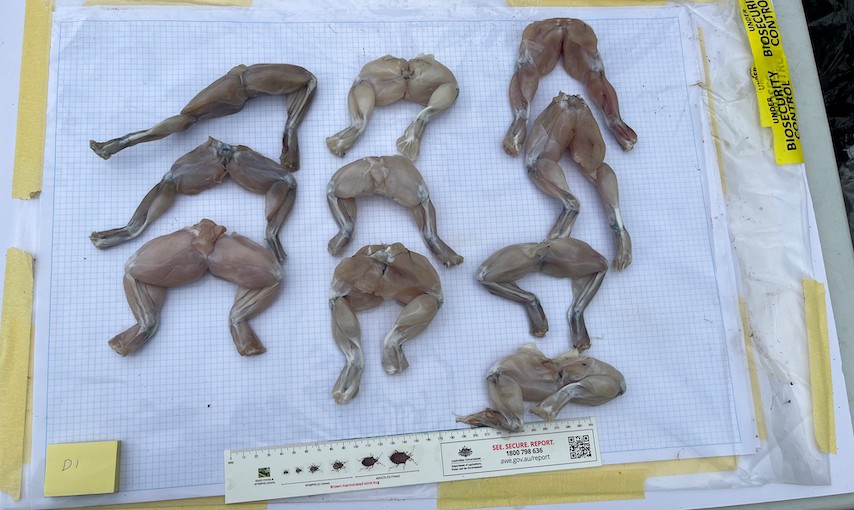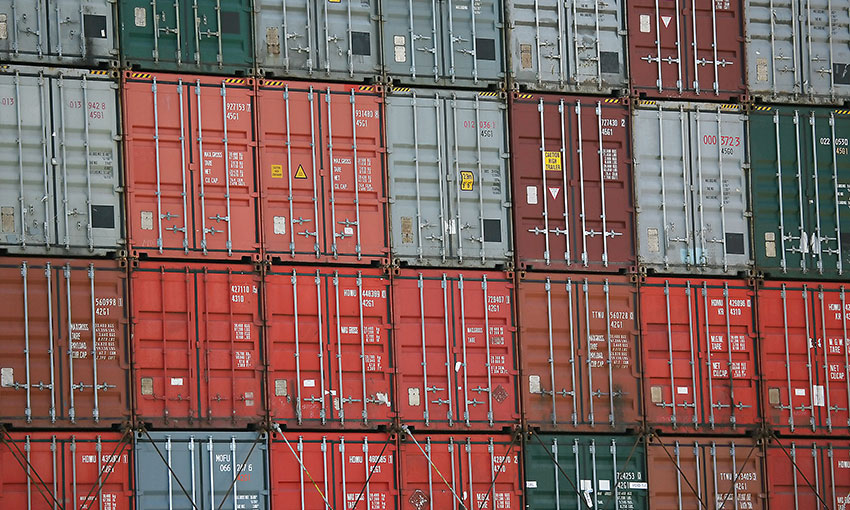BIOSECURITY officers have intercepted seven shipping containers’ worth of meat and risk material in what is claimed to be one of Australia’s largest single biosecurity detections.
Turtle meat, frog meat, pork, beef, avian products and raw prawns are among 116 different types of products discovered in Sydney, weighing a combined total of around 38 tonnes.
The Department of Agriculture, Fisheries and Forestry is collaborating with Australian Federal Police, Australian Border Force and other relevant government agencies as part of Operation Avoca. Investigations are ongoing.
Minister for agriculture, fisheries and forestry Murray Watt said described it as “a huge detection”.
“We are talking about 38 tonnes of goods which could be carrying diseases that could have had catastrophic consequences to our agricultural sector,” Mr Watt said.
“We often see smaller quantities of risk products brought in through parcels in the mail or carried by incoming passengers, and officers work extremely hard to stamp out these threats.
“However, a discovery of this size and nature is a stark reminder of what’s at stake if we don’t continue to fiercely protect our precious biosecurity.”
National Farmers’ Federation president Fiona Simson welcomed the “biosecurity bust” which she said saw raids on facilities in Western Sydney.
“That illegal stockpile of exotic meats was a potential biosecurity hazard in the heart of our largest city,” Ms Simson said.
“Australia is fortunate to be free of so many serious pests and diseases that could decimate our natural environment and our ability to produce food and fibre. This is achieved in no small part thanks to our rigorous biosecurity systems and import protocols.
“Engaging in any contravention of these systems is simply unacceptable, and could devastate our economy, our environment, and our food systems.
“We’re lucky that in this instance, Australia’s biosecurity officials were one step ahead. Next time, we might not be so fortunate.”
Ms Simson said increasing trade flows, disease pressures and climatic changes are putting pressure on Australia’s biosecurity system.
“With diseases like foot and mouth disease and lumpy skin disease threatening our livestock industries and myriad other risks to our horticulture and plant industries, we need to pull out all stops.”
Ms Simson hopes to see “adequate and sustainable” funding injected into the system in the May federal budget.
“We’re eager to see material progress on a long-awaited sustainable funding mechanism to ensure our system is appropriately resourced and our dedicated biosecurity professionals can continue to do their important work into the future.”
Mr Watt said the government allocated $134 million in funding in the last budget to bolster Australia’s biosecurity system.
“There are severe penalties for breaching the Biosecurity Act,” he said.
“You could face 10 years imprisonment and fines of up to $1,375,000 for an individual, or $6,875,000 for a company.”





